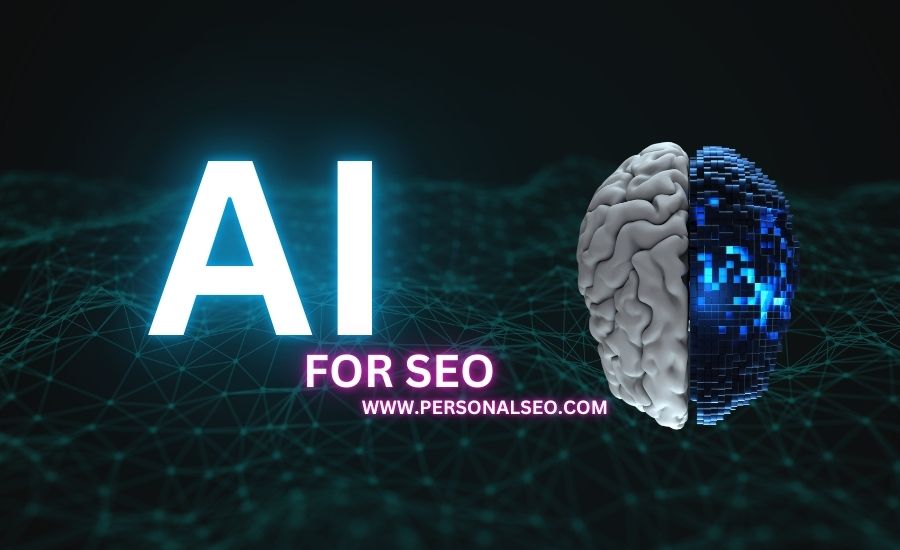SEO for AI: How to Get Discovered in ChatGPT, Gemini, Grok, and Beyond
AI systems often surface unique or highly engaging pages—even ones covering fun or unusual topics. For example, our article on Real Estate on the Moon shows how creative content can capture attention across search engines and AI summaries. As AI search grows, website owners are finally starting to ask the right question:
“How do I optimize my site so AI models recommend my business?”
The truth is simple—but the strategy is evolving fast. At Personal SEO, we monitor these changes daily, and here’s what actually works right now.
AI Search = Search Engines + LLMs
Most major AI systems don’t crawl the web independently. Instead, they lean on traditional search engines:
- ChatGPT Search → uses Bing
- Perplexity → uses Bing + its own crawling
- Gemini → uses Google
- Grok → blends X data + external search
- Claude → currently mixed sources, evolving
That means ranking in Google and Bing still matters—and is currently the strongest driver of AI visibility.
1. Do Traditional SEO (Because It Still Works)
Most SEOs who study LLM sourcing agree:
if you rank in Google and Bing, you get mentioned in ChatGPT, Gemini, Grok, Perplexity, and others.
Multiple case studies show websites ranking even in positions 30–40 still receive AI referrals because LLMs summarize multiple sources, not just #1 results.
2. Make Sure AI Crawlers Can Actually Read Your Site
This is the biggest technical issue most businesses overlook. AI crawlers are far less sophisticated than Google.
- Do NOT block LLM crawlers (OpenAI, Anthropic, Perplexity, etc.) in your robots.txt
- Avoid client-side JavaScript rendering—most LLM crawlers do not render JS at all
- Serve clean, static HTML whenever possible
If Google can understand your page but ChatGPT Search cannot, you won’t show up in AI results.
3. Build Brand Mentions—Not Just Backlinks
LLMs rely heavily on unstructured text. They look for patterns, entities, and brand references across the open web.
Brand mentions outperform backlinks in the AI era.
Places to aim for, depending on your industry:
- Wikipedia
- Crunchbase
- News articles
- Industry directories
- Community forums
LLMs prioritize trusted sources that humans read during research. Your job is to show up in those ecosystems.
4. Structure Your Pages for Answer Engine Optimization (AEO)
AI search tools behave differently from Google. They extract answers—not just keywords.
To optimize for AI-generated answers, use:
- FAQ sections
- Direct question-to-answer formatting
- Clear definitions, steps, and summaries
- Strong entity signals (business name, industry, location, categories)
FAQs especially help because LLMs lift the Q&A format directly into responses.
5. Don’t Rely on Schema—LLMs Don’t Use It (For Now)
Despite SEO chatter, there’s no evidence that LLMs train on or use schema markup. Google uses schema for display and classification, but ChatGPT, Gemini, Perplexity, and Claude do not interpret it directly.
Schema is still good for SEO, but it is not currently an AI ranking factor.
6. Monitor Your AI Visibility
AI visibility is now measurable. Tools that track how often your brand appears in AI answers include:
- Peec AI
- Profound
- Otterly
- Parse
- Rankscale
These tools help you see which prompts surface your brand and which competitors’ AI mentions instead.
7. Optimize for Bing If You Want ChatGPT Exposure
Because Bing powers ChatGPT Search and Perplexity, improving your Bing rankings increases your chances of being cited by AI models.
Key Bing factors:
- Stronger emphasis on exact-match keywords
- Bing Places optimization for local businesses
- Clean, accessible content with minimal JS
- Clear author profiles and expertise signals
8. Create Extremely Helpful Content
Every AI engine prioritizes helpful, factual content. That means:
- Answering real user questions directly
- Giving clear steps, definitions, and explanations
- Adding data, examples, comparisons, and expert insights
If your page is the best answer, AI uses it—whether you’re rank #1 or #41.
The Bottom Line
SEO is now AI SEO.
Optimizing for traditional search engines automatically increases your visibility in LLM-powered search.
If you want your site to appear in ChatGPT, Gemini, Grok, Perplexity, and beyond, focus on:
- technical accessibility
- brand authority
- helpful answer-focused content
- strong performance in Google/Bing
At Personal SEO, we build all of this into every client strategy. If you’re ready to optimize for the next era of search, we can help you take advantage of AI visibility while it’s still early.
Ready to get optimized for AI search?
Contact Personal SEO and let’s build your AI-first SEO strategy.




